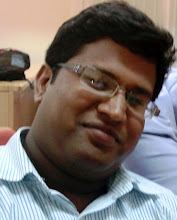Report of CVC
The Supreme Court-appointed Central Vigilance Committee (CVC), headed by Justice D.P. Wadhwa, retired Supreme Court judge, in its recent report on the functioning of Public Distribution System (PDS) has slammed it as one of the most corrupt sectors.
The Committee found that there was large-scale diversion of food grains supplied to the PDS; black marketing by Fair Price Shop (FPS) dealers; a strong nexus between them and officials of the department; improper record-keeping; false entries in registers; massive delays in making ration available to beneficiaries; excessive pricing; poor quality of food grains etc.
According to the Committee, in Rajasthan, "PDS has totally collapsed."
The Committee said that the Rs 28,000-crore subsidy annually spent by the Centre for PDS was mostly pocketed by vested interests.
The Background
India's Public Distribution System has about 462,000 'Fair Price Shops', often referred to as 'ration shops'. At present, 35 kg rice and wheat are being sold per poor family at the rate of around Rs 8 and 6 per kg respectively. For the poorest among the poor, this rate is around Rs 2-3 per kg. The market price of similar quality rice and wheat at present is around Rs 24 per kg.
During 2007-08, the total expenditure made by Central government on various poverty alleviation programmes including subsidy on food, fertilizer, and fuel stood at about Rs 1.80 lakh crores.
Basic problems in PDS
Since market price would always be higher than the subsidized price at which items are supposed to be sold by ration shops, there is a strong temptation on part of these shop operators to sell the items at market price. This leads to black marketing of a large portion of rations. So the remaining portion has to be either adulterated to make up for the diversion or the poor have to be denied it altogether. In order to do black marketing on long-term basis, ration inspectors have also to be bribed. Thus, differential in food prices leads to black marketing, corruption, adulteration and shortages.
Trying to improve PDS by tightening the procedure and appointing more inspectors does not work at all. In fact, it further worsens the situation by increasing the administrative cost and bribe rates. The Planning Commission estimated in 2005 that the government spends Rs 3.65 to transfer Re 1 worth of food, suggesting leakage of about 70%.
Solution by other countries
Most countries supplement nutritional needs of the poor by providing them Food Stamps or Vouchers as in the US, Europe, Brazil, Egypt, Sri Lanka etc. These vouchers can be used to buy food items from any private shop at market price. This system does not create parallel food prices and hence cannot be misused for black marketing and corruption. The poor are helped effectively by this system.
Why can't India also find a similar solution?
The Central and State governments are at present spending a huge amount of money in the name of poverty alleviation through hundreds of schemes administrable by millions of babus resulting in massive wastage and corruption.
Instead of this, the amount should be directly transferred as cash. Let us see the figures.
According to the Economic Survey, 2007-08, about 27% of India's roughly 1.13 billion population are below the poverty line (BPL) i.e., about 310 million people or 70 million households. If Rs 1,80,000 crore spent on various schemes and subsidies is divided by 70 million households, monthly income per household would come to Rs 2140 per household. This is more than the poverty line income!
Cash can now be directly transferred to the accounts of the intended beneficiaries electronically from some central Bank. Hence, there would be no need of huge number of government babus to perform this task. That would eliminate wastage and corruption.
Even Economic Survey 2009-10 has indicated that some form of food coupons given to the poor would be better than the present system.
Jago Party supports direct transfer of cash
Jago Party, right from beginning, has been advocating elimination of all government subsidies and schemes and payment of Rs 800 p.m. to all voters. The amount of Rs 800 p.m. has been arrived at by dividing the total amount of annual subsidy being given by Central + State governments [about Rs 4 lakh crore] by 40 crore voters who actually voted in the last general election.
CONCLUSION
Scrap PDS which is wasteful, corruption-ridden and has failed to benefit the poor. Introduce direct transfer of cash in its place – the amount of cash should roughly be the same as being spent by way of subsidy.
Political parties which have developed vested interests in maintaining this rotten system of PDS must be exposed and punished by voters.
Source: Jago Party
I welcome your comments.
